Ex-superintendent, medical director of Holyoke Soldiers’ Home change pleas
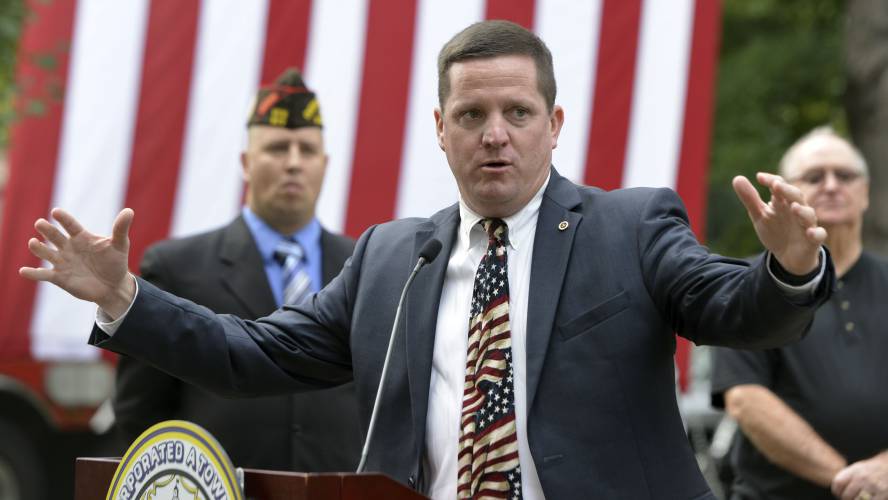
BENNETT WALSH
|
Published: 03-26-2024 7:49 PM
Modified: 03-26-2024 9:45 PM |
NORTHAMPTON — Four years after reports of veterans’ deaths at the Soldiers’ Home in Holyoke began to grow in the early days of the COVID-19 pandemic, the legal cases against the home’s former superintendent and medical director came to an end at a change-of-plea hearing Tuesday in Hampshire Superior Court.
After Bennett Walsh and Dr. David Clinton admitted to sufficient facts on five counts of neglect of an elderly person, exposing them to substantial risk of harm, Judge Edward McDonough, siding with their defense attorneys, continued their cases without a finding for three months, with conditions, and levied a victim/witness fee of $90 against each defendant.
“It’s disgusting,” a distraught Susan Kenney of Ware said outside court following Walsh’s hearing. “It’s a slap in the face. A $90 fine for 76 deaths?”
Kenney’s 78-year-old father, Air Force veteran Charles Lowell, died of COVID at the Soldiers’ Home April 15, 2020. Her mother, Alice Lowell, accompanied her to the hearing, along with more than a dozen other family members of veterans who had lost their lives, they and prosecutors contend, because of Walsh and Clinton’s failure to follow basic measures to control infection. By the end of May 2020, 76 veterans had died, making it one of the deadliest virus outbreaks at a long-term care facility in the nation.
Assistant Attorney General Kevin Lownds, the chief prosecutor on the cases, said in court the facts were that veterans and staff had begun to show symptoms of and test positive for COVID by March 27 when Walsh and Clinton decided to consolidate two dementia floors into one unit at the home. This meant there were now six or seven residents per room, nine beds in the dining room 2 to 3 feet apart and a larger number of vets wandering the common areas — some with symptoms, some showing none.
Lownds said visitors and staff members later described conditions inside the home at that time as a war zone and “the worst thing I’ve ever seen in 25 years in nursing.” A staffing crisis erupted as more and more workers became sick. Veterans who were already at high risk because of their age and co-morbidities were exposed to COVID over and over, he said. The set-up was the opposite of effective control.
“It was effectively an incubator for COVID,” Lownds said.
Witnesses described residents suffering from hunger and dehydration because of the acute staffing shortage. And neither Walsh nor Clinton effectively sounded the alarm over the unfolding catastrophe, leaving state officials unaware of the problems, Lownds said.
Article continues after...
Yesterday's Most Read Articles
McDonough noted that he had dismissed the entire case against Walsh and Clinton on a defense motion in November 2021 when he was sitting in Hampden Superior Court. The Attorney General’s Office appealed the dismissal to the Supreme Judicial Court, which, in a 5-2 majority, sent five counts of the original indictment back to the lower court for trial.
Lownds presented the same arguments during Clinton’s hearing. Calling for both defendants to plead guilty to the charges, he recommended a sentence of three years probation and 12 months home confinement. He said the sanctions were important, both as punishment and as deterrence.
Walsh’s attorney, Michael Jennings, argued that no one in Massachusetts was prepared for the reality of COVID when it swept into the state in March 2020. Health officials said the threat was low as late as the beginning of the month. The first Soldiers’ Home patient was tested March 17, and was found to be positive March 21, he said.
Jennings said Walsh was in constant communication with the Department of Public Health and Veterans Services, and even requested help from the National Guard, but this was never passed “up the chain.” He quoted a newspaper account illustrating how desperate that time was everywhere, and a grand jury witness who described the options facing Soldiers’ Home management by March 27 as a “Sophie’s Choice.”
Walsh, 54, is a Marine Corps veteran who was deployed seven times in war zones, including Iraq and Afghanistan, Jennings said. After retiring to the Springfield area, he was reluctant when friends encouraged him to apply for the job of administrator at the Soldiers’ Home.
“He didn’t think he had the qualifications,” Jennings said.
But being a licensed nursing home administrator was not a requirement for the job, he said, and state officials overseeing his appointment by the board of trustees considered his military service to be qualification enough.
Walsh and Clinton both admitted that the commonwealth had sufficient facts for a jury to find them guilty of wanton and reckless conduct, though neither would admit that their conduct was wanton and reckless or that their actions had caused harm.
Clinton’s attorney, John Lawler, said his client had been working remotely from March 20-26 and said he was not party to the decision to consolidate the dementia units, although a prosecution witness has testified that he authorized the change.
Ann Windrum of Chicopee, whose father, World War II veteran Donald Windrum, died during the COVID outbreak at the Soldiers’ Home, was philosophical at the outcome of Walsh’s hearing.
“It’s less than a slap on the wrist,” she said. “I don’t wish him or Clinton any harm. I hope they get better care than they gave.”

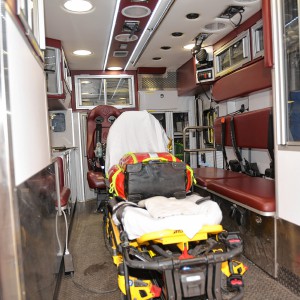 What are the protocols for emergency transport of infants?
What are the protocols for emergency transport of infants?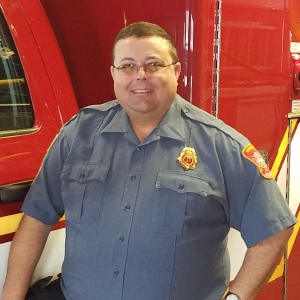 State records show Northfield EMS chief’s paramedic license suspended over failure to transport infant
State records show Northfield EMS chief’s paramedic license suspended over failure to transport infant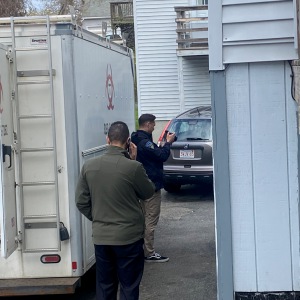 Authorities ID victim in Greenfield slaying
Authorities ID victim in Greenfield slaying 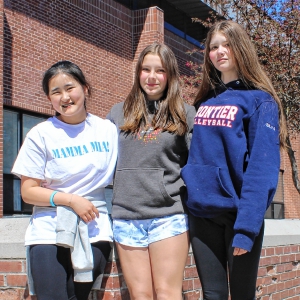 Frontier Regional School students appeal to lower voting age
Frontier Regional School students appeal to lower voting age
